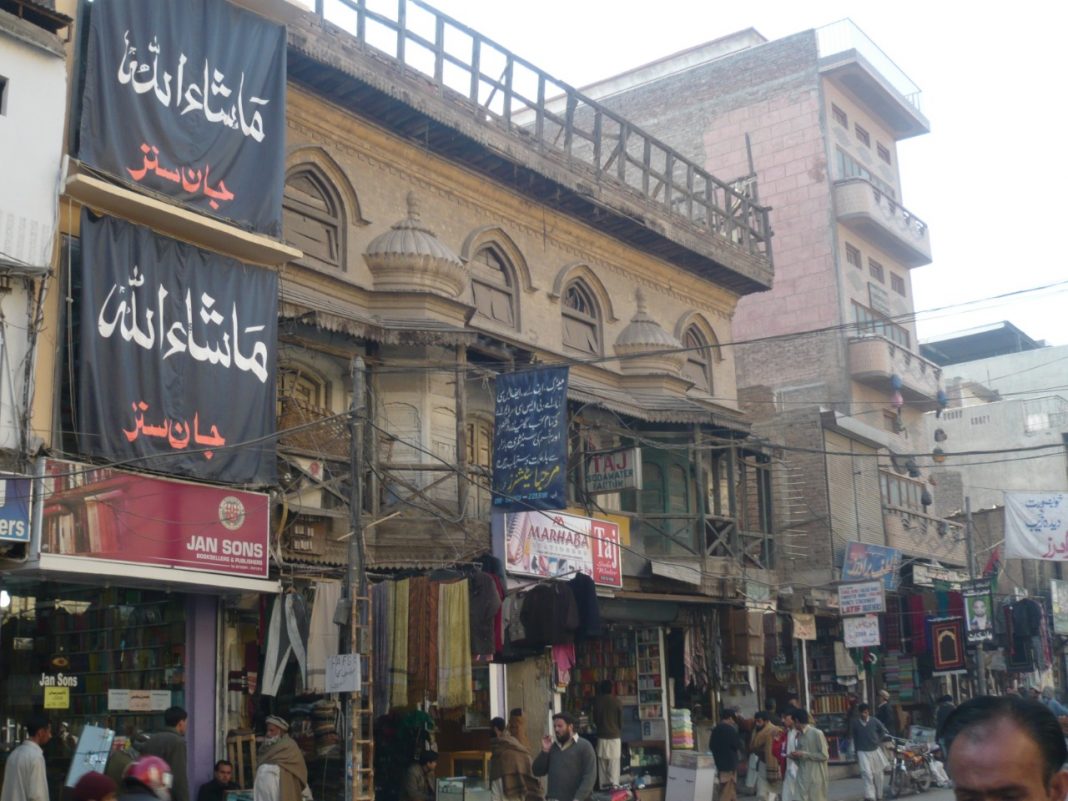ISLAMABAD: Myths, stories, and legends always mesmerize people and also serve as a part of economic activities. Narration in many forms has remained a profession and a part of heritage of human history from times immemorial. The centuries-old Peshawar city’s Qissa Khwani Bazaar is also a leaf from the fabulous book of history, reports WealthPK.
‘Qissa’ is derived from Arabic meaning fable, while ‘Khwani’ is a Persian word which means telling. Professional fable tellers were a part of almost all of the ancient traditions in different forms i.e., epics, tales, folklore, myths, ballads.
Talking to WealthPK about the revival of the tradition of chronicle description as a segment of tourism, Dr. Mahmood ul Hasan, Deputy Director of the Department of Archaeology and Museums, Islamabad, said, “Peshawar is one of the fortified/walled cities, estimated to exist since 600 B.C. under different names. The fortified cities i.e., Lahore, Multan, had all cultural and economic activities within their walls. Qissa Khwani Bazaar was one of the ancient trade centers and the pivot of business activities for traders and merchants coming from the subcontinent, Central Asia, Afghanistan, and other faraway places.’’
Qehwa Khanas or local green tea houses were the traditional gathering places of locals, wanderers, travelers, tourists, traders, merchants, etc. Business deals and chitchat were a part of such places along with the serving of a few other food items.
Professional ballad singers or fable tellers were also a regular part of such places to amuse the crowd. It was also a source of their livelihood, which faded away with time but the folklores are still alive.
‘’I happened to visit Hazoori Bagh, Lahore where I listened to an instrumental charming folklore. People enjoyed it. So, I think revival of this tradition as a part of our tourism segment will be a good addition to this chapter, especially with the addition of economic benefit. But it would add more wonder if this bazaar was conserved and at least a specific part of it was arranged like in ancient times. The departments are there but they do not keep too many facilities. Tourism and archaeology departments both (considering the lore as an intangible asset) can play a key role in conserving folk telling and heritage places respectively. If tourist guides add interesting stories during the tours, it will help them get good economic benefits.”
Talking to WealthPK, Managing Director of Pakistan Tourism Development Corporation (PTDC) Aftab Ur Rahman said, “The primitive tradition of storytelling is as old as the human history to charm wanderers, travelers, and tourists. Qissa Khwani is the oldest living bazaar in South Asia. It acted like a campground for merchants and witnessed the vigor of great warriors, and invaders towards the subcontinent through the Khyber Pass.
As a great tourism product, the conservation of grandeur and beauty of Peshawar both in tangible and intangible heritage is matchless. A few famous historical places linked with this bazaar or tangible assets are ‘Gorkhatri, a place where Kanishka constructed a Buddhist stupa, an old inn, Abid Khan Masjid, the famous Sarafa Bazaar or the jewelers’ market, Sethion ka Mohalla (with its old buildings adorned with wood carvings in Chinioti style) and other attached places like the old leather market and brass artisan’s market, etc.
‘’The rich intangible craft of this city in the form of folk tales, old music, songs, etc calls for preservation as a national asset. They still exist in old scriptures, memories, and verbal traditions but as a part of tourism, they will also build the soft image of the country. The revival of lore description will act as the envoys of peace, love, tradition, and hospitality for Pakistan in the world,’’ Aftab said.
Expressing his views about the importance of reviving the old folklores, journalist and senior teacher in a local higher secondary school, Sher Alam Shinwari from Peshawar said, “It is an intangible asset and can be easily spread in the world only by telling. In this way, it can also be saved in a written form. Tourist guides also act as ambassadors of cultural promotion and values. They will be more productive in this way and a good number of trained tourist guides having an additional treasure of folklore will be of great help to create a soft image of the country.”
Talking to WealthPK, history writer and owner of Zia Sons Printers adjacent to Qissa Khwani Bazaar Muhammad Ibrahim Zia said, “It is the tradition that keeps its own charm, and is important to be revived especially in the Qissa Khwani Bazaar along with tangible heritage assets there. Trained folklore tellers cum tourist guides will not only add flavor to tourism and amuse people, but also help spread the tales of an area to other nooks. I myself wrote three books about different historical aspects of Peshawar i.e., cultural heritage, calligraphy, film, stage, and drama actors. In my book ‘Peshawar, Mazi kay dareechon say’, I have discussed the tradition of folklores as well.”






